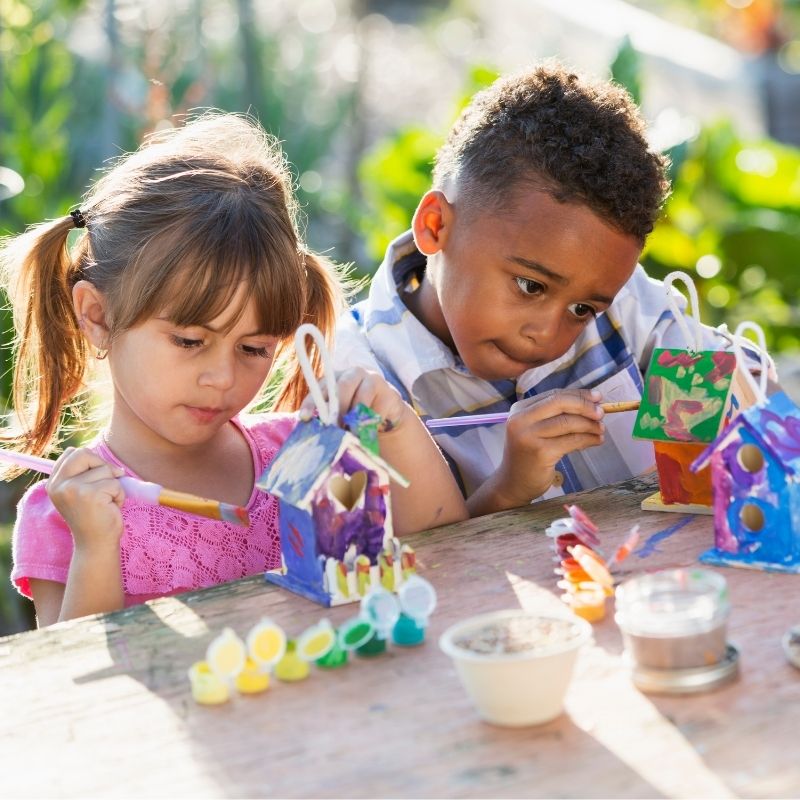
How to Make Playdates Inclusive for Children with Autism
As a society, we have made strides in our awareness of Special Educational Needs and Disabilities (SEND), such as Autistic Spectrum Disorder (ASD), and the importance of inclusivity.
However, we still have some way to go in making play inclusive for all.
A lack of understanding of children with ASD can lead to them being excluded from parties and playdates, leaving children feeling isolated and parents upset and frustrated.
In this article, we share advice and tips for hosting a successful playdate for your child’s friend with ASD.
Some common concerns
- If you don’t have much experience with ASD, it can be difficult to understand a child’s needs as the way they express themselves might be different from what you are used to.
- Some children with ASD will need time out to themselves when things get too overwhelming for them, and you might see them sitting away from the group with headphones on. It’s important to know that they might just need some time to decompress.
- You might also worry that you won’t be able to handle the child’s needs, or that you won’t know what to do if they have a problem.
Tips for your play date
1. Talk to the parents
- The best thing you can do is to ask the parents of your child’s friend with ASD what you should know before they come over and be open to what they have to say. It will help to make friends with the parents and remember that parents of children with special needs are used to answering questions.
2. Find out what interests your child’s friend
- Ask the parents or your child to find out what the child likes to do, and what they are particularly good at.
- Find something that both children can join in with and enjoy.
- Open-ended toys and games where there is no pressure to win, and no right or wrong answers, are a good way to go as they are ‘just for fun.’ Toys that encourage storytelling or imaginative play are all great for this. Construction toys and crafts or sensory-type activities also offer flexible and creative play.
3. Be mindful of sensory sensitivities and eating habits
- Children with ASD can be sensitive to noises, smells, and textures. Talk to the child’s parents and plan accordingly. For example, you might want to avoid using strong room fragrances.
- Similarly, children may have very specific habits when it comes to food. They may not like certain textures or that certain foods must never touch.
- Children with ASD are also particularly susceptible to food allergies and intolerances, so make sure you are aware of these as well. Don’t be offended if they don’t want to eat as they may be too excited.
4. Take things step by step, and plan the playdate
- Start with short, regular playdates and build up to longer ones, allowing your child’s friend with ASD to get comfortable visiting your home.
- Make a plan for each visit and review it with both children so they feel confident with the routine.
- Let their parents know what you have planned as well so they can discuss the plan with their child if they need to.
- Avoid making any last-minute changes unless absolutely necessary, as this can be unsettling for a child with ASD.
5. Don’t take it personally if they change their mind
- The child’s parents need to feel comfortable canceling at the last minute, and they will appreciate having another parent who can be flexible and empathetic.
- Remember, it’s not a reflection on you or your child if the playdate doesn’t work out.
Summary
You are your child’s most important role model. If you treat everyone equally and value diversity, your child will do the same. Children’s biggest lessons start at home and you set a great example by taking the time to understand and learn about how to best include children with SEND.
We hope these tips have been helpful and remember, don’t be discouraged if your first playdate doesn’t go to plan. The fact you are making an effort is what will mean the most to your child’s friend and their family.


